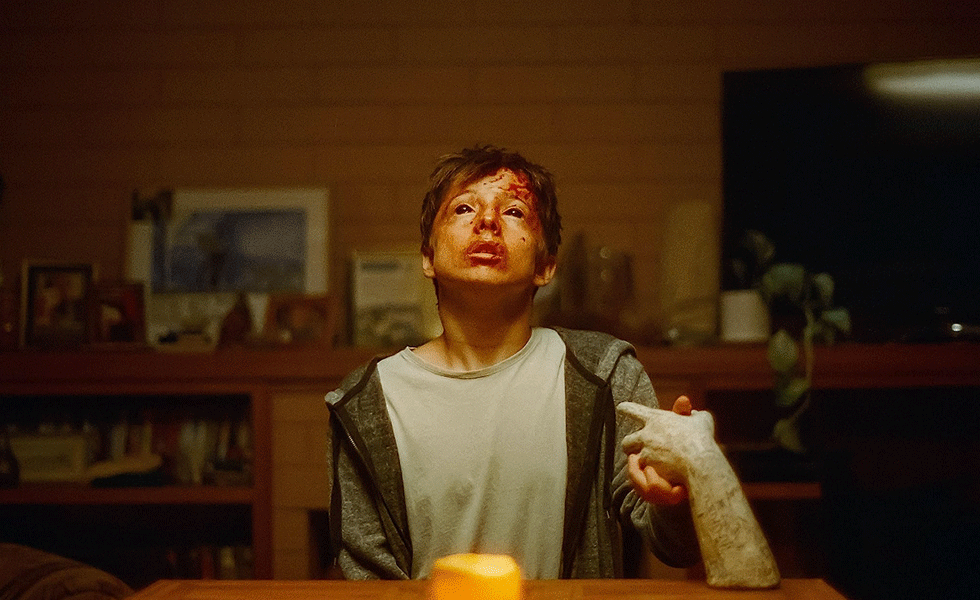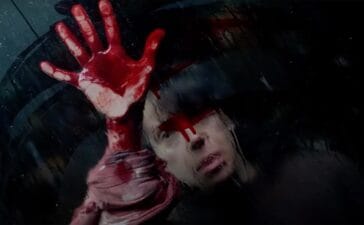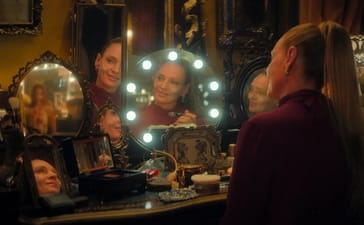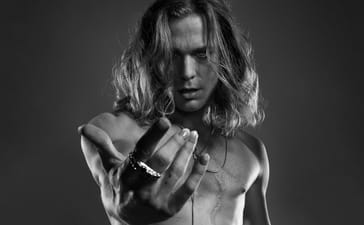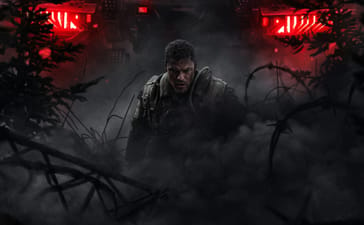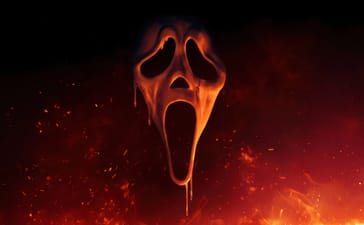Having won legions of fans around the world with their YouTube channel RackaRacka, Adelaide-born brothers Danny and Michael Philippou have graduated to the big screen with the brilliant possession picture Talk to Me. Travis Johnson finds out how that happened.
I wrote that headline and I meant it, folks. I don’t spend much time exploring the ecology of YouTube, because I am old and there are wolves after me, so Danny and Michael Philippou’s work under their RackaRacka banner never crossed my field of vision. But I do watch a staggering amount of horror, and the last time we got a feature debut this assured, and this straight-up confident in its execution, was when Ari Aster hit us with Hereditary a few years back. Talk to Me is an absolute banger.
Set in the workaday suburbs of Adelaide and the teens who live there, Talk to Me centres on a party trick with a difference. Tough kids Hayley (Zoe Terakes) and Joss (Chris Alosio) have somehow acquired an arcane artefact, the mummified hand of a spirit medium that not only allows the user to see ghosts, but to allow themselves to be possessed by one. Being bored Aussie kids stuck in the doldrums of suburbia, they use it for kicks and TikTok clips.
But for young Mia (Sophia Wilde), recently bereaved, the supernatural MacGuffin holds a particular appeal: she can find out how and why her mother died. Surely there’ll be no unforeseen consequences…
You don’t need to know much more than that, but you do need to see it – if you’re a horror head, this is precisely the kind of genre gold you pan for. But I did get to chat to Danny and Michael about how this whole thing came together.
So, talk to me about Talk to Me. I understand that the original idea came from Daley Pearson (Bluey producer and, memorably, Thor’s flatmate). How did it wash up on your shore?
Michael: So, he had a short film, a comedy horror short that he sent to me and asked if I wanted to direct it. I did a pass on it, I changed the tone to be a bit more serious and inserted characters that I really connected to, and then once I started writing I just couldn’t stop. So yeah, that was the foundation of that. It’s so weird that it came from a guy that works on Bluey. So yeah, shout out to Daley.
There’s a strong history of comedy and horror crossover – creators moving from comedy to horror, such as Jordan Peele. You’ve done a lot of comedy in the past – where do you see yourself in that sort of milieu?
Danny: Well, we’ve always been a fan of genre and mending genre together and dipping in and out of different genres. We love Bong Joon-ho – Memories of Murder is my favourite film – and the way that he can navigate through different genres and it still feels like one film is something that we’ve always respected in film and wanted to do.
Michael: I think that sometimes where comedy/horror films crumble a little bit is when the comedy overshadows the horror and the horror isn’t taken seriously; if they’re making too much fun of the horror, then it doesn’t stand up. Shaun of the Dead is so powerful because the horror aspects were serious and real, and the consequences were real, and the characters were real. I think that was a good example of comedy/horror. But it’s a hard thing to pull off. I think Talk to Me is more horror than it is comedy, though – I think we’re more on the horror side.
I’d agree with that. What themes did you want to approach with? It seems to me you’re digging into some interesting stuff about youth culture, about spectacle, about the commodification of the uncanny. Tell me about that.
Michael: Oh gosh! You said it better than we did.
Oh, I’m very serious.
Danny: We were exploring things that scared us and Daley like, say, mental illness, which runs in our family. Our grandma took her own life and depression runs in our family. And the idea of that affecting you because of just being born like through that bloodline has always just been so scary. That scared us.
Michael: And also, just the reliance on vices and vices in general in today’s culture. I think that a lot of it is glorified, so we wanted to talk about that as well. But there’s just so many different themes, and it’s touching on so many things, and it was just things that, personally, scared me. I also wanted to capture this relationship with my friend’s older sister, Nelly. I used to really look up to her and cling to her and she was my role model. But then, what if she introduced me to something that was negative? I was just tapping into different fears like that.
In terms of horror, who are your guys? Who influences what you do?
Michael: I think one of the most iconic horror films that I can think of that I’m in love with and everyone loves is The Exorcist, and again it’s an example of the characters taking the horror seriously. It wasn’t just about jump scares, it was grounded in the drama and the characters. I think that was really inspirational for us as a whole.
Danny: Yeah, I think there’s so many different film makers and films that we’ve subconsciously borrowed from without even really knowing it. We have a respect for every film. I think every film has something unique and special, even really bad films always have something – there’s something there, you know?
What was your casting process like? It’s an incredible young cast and I believe every character in it, which is kind of rare in horror. Sometimes in the genre you get a dodgy performance or two, but you let it slide because at the end of the day you’re here to watch someone get chopped into sushi. But this is very much a character-first film, with excellent turns across the board.
Michael: Because it happened during Covid our casting process took up two years; it postponed everything. We just wanted everything to feel as authentic and real as possible, Even in the rehearsal process we were going through lines and trying to find things that fit naturally in their mouths, and the actors could change things if they wanted to and had the freedom to do that.
But we knew as soon as we saw each person that they were it. Like, as soon as we saw Zoe I’m like, “Yes, that is Hayley!” And I was so obsessed with Zoe’s audition. I’m like, “If they’re not available then I don’t want to shoot the film until they are!”
One thing I really liked about Talk to Me is that it is so specifically and deliberately Australian. Some Australian genre films, if they’re looking for an international market, tend to elide away some of the more specific Australianisms – you guys don’t. How important was that to you?
Michael: Oh, we love everything about the suburbs of Australia. That world and the characters are based on people that I know and the way that they talk, and encapsulating all that was so important and shooting in Australia was so important. Every project that I ever do, I wanna bring back and shoot at least some of it in Australia.
Danny: We were initially gonna do it with a Hollywood studio and it was going to get a guaranteed theatrical in America. But the notes and that… we didn’t align with it creatively and it felt right to do it here and do it Australian. Even our YouTube stuff is Australian, but we have an international audience. So why couldn’t we do that with a film? Have it be Australian, but reach an international audience. That’s what we’re trying to do. We weren’t shying away from the fact that it’s Australian at all, but I think the characters are relatable enough in every country.
Michael: Growing up, there was some sort of weird cultural cringe about Australian films just because it never sounded cinematic to me. I think that sometimes Australian films really punctuate the accent, and it feels somehow not Australian and not American. But here everyone was embracing the Australian accent and loving it.
Talk to Me is in cinemas now
Image credit: A24


